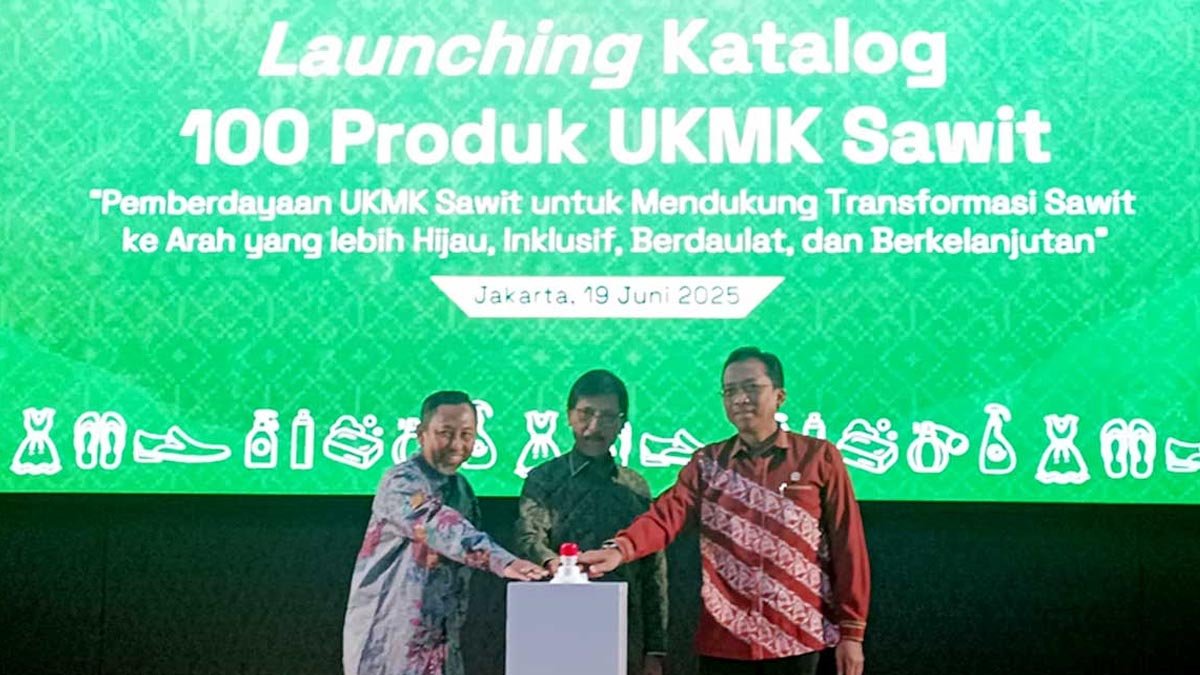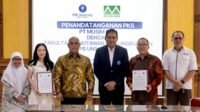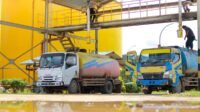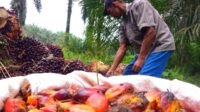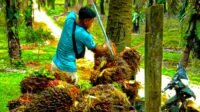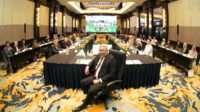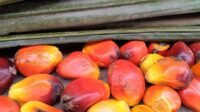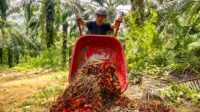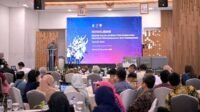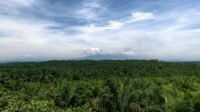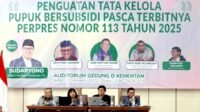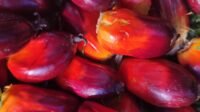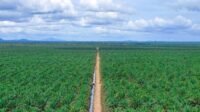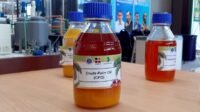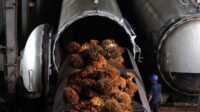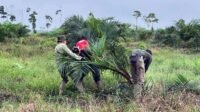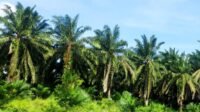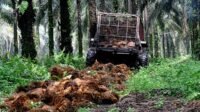PALMOILMAGAZINE, JAKARTA — The Indonesian government continues to promote the potential of community-based palm oil through the release of the second edition of the 100 Palm-Based MSME Products Catalogue by the Plantation Fund Management Agency (PFMA or BPDP). This catalogue highlights the transformation of palm oil from a mere export commodity into a platform for innovation and local economic empowerment led by Micro, Small Enterprises, and Cooperatives (MSMEs).
The second edition features 100 standout products created by palm oil-based MSMEs from various regions across Indonesia between 2024 and 2025. It showcases not only sustainable palm-based food products but also a wide range of creative innovations derived from palm oil waste, including handicrafts, cosmetics, personal care items, traditional textiles, and organic fertilizers.
“This catalogue launch is a tangible part of our efforts to transform the palm oil industry into one that is greener, more inclusive, sovereign, and sustainable,” said BPDP Director Eddy Abdurachman during the launch event held at the BPDP Auditorium, Komplek KKP, on Thursday, June 19, 2025.
BPDP views MSMEs as key drivers in translating palm oil research and innovation into real-world solutions. Through this catalogue, BPDP aims to demonstrate that research outcomes should not remain confined to laboratories—they can be commercialized into high-value, competitive products.
“We want palm oil MSMEs to go beyond primary production and move toward utilizing palm oil by-products to develop eco-friendly, market-oriented goods,” Eddy added.
More than just a promotional tool, the catalogue serves as a strategic platform that connects business actors, consumers, and investors to the diverse range of palm-derived MSME products. The goal is to shift public perception—palm oil is not only about cooking oil, but also about creativity, self-reliance, and sustainability.
Despite the global prominence of large-scale palm oil industries, the sector’s backbone lies in millions of small entrepreneurs. By empowering palm-based MSMEs, BPDP seeks to unlock new business opportunities, particularly in non-palm-growing regions.
This initiative aligns with Presidential Regulation No. 132 of 2024, which emphasizes the importance of promoting and expanding markets for plantation products. BPDP supports this through training, workshops, network development, and facilitating access to financing for palm MSMEs.
In 2023, BPDP engaged 547 palm MSMEs, and the number grew to 798 in 2024. As of May 2025, 532 MSMEs had taken part in the promotion and development programs—many of which now feature in the new catalogue following further capacity-building initiatives.
Eddy emphasized that the palm MSME program reflects the vision outlined in President Prabowo Subianto’s Asta Cita, particularly the goal of national self-reliance. Inclusively and sustainably managed palm oil, he said, can make a significant contribution to economic resilience, job creation, and public welfare.
“These achievements must be preserved and strengthened. Collaboration across all stakeholders—farmers, cooperatives, local governments, and investors—is key to securing a competitive and self-reliant future for Indonesia’s palm oil sector,” Eddy stated.
The catalogue is intended not only as a promotional medium but also as a source of inspiration and knowledge. BPDP invites MSMEs and palm oil cooperatives to use it as a roadmap for developing value-added products.
Through this initiative, locally produced palm oil products now gain national visibility—an exhibit of creativity and a testament that palm oil can generate meaningful benefits not just for global markets, but also for local households, domestic markets, and regional economies. (P2)

